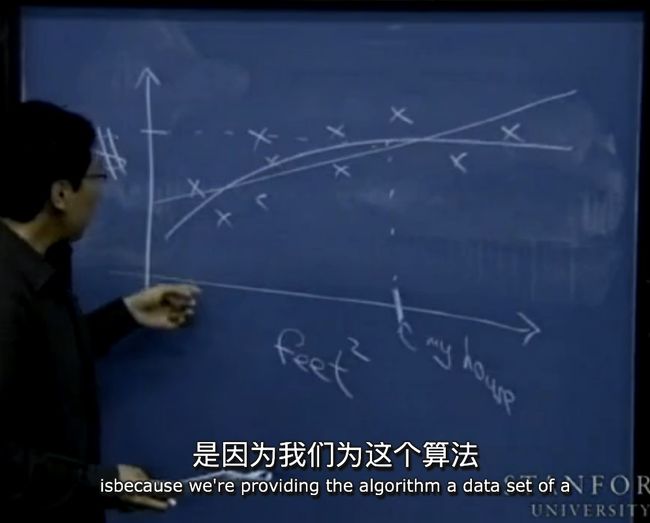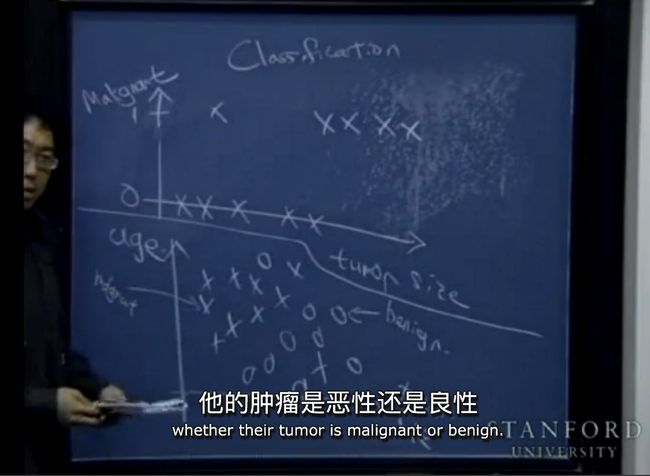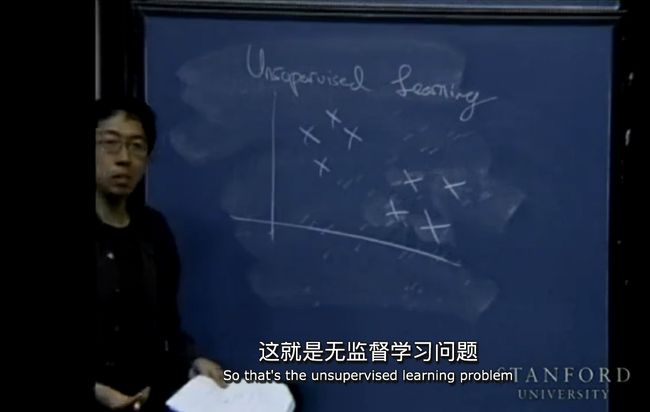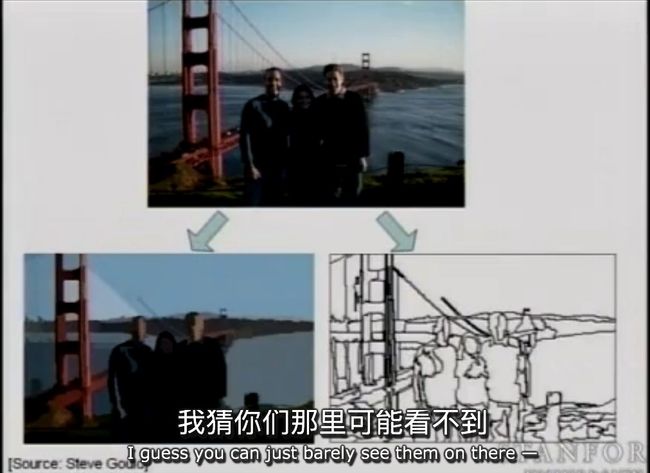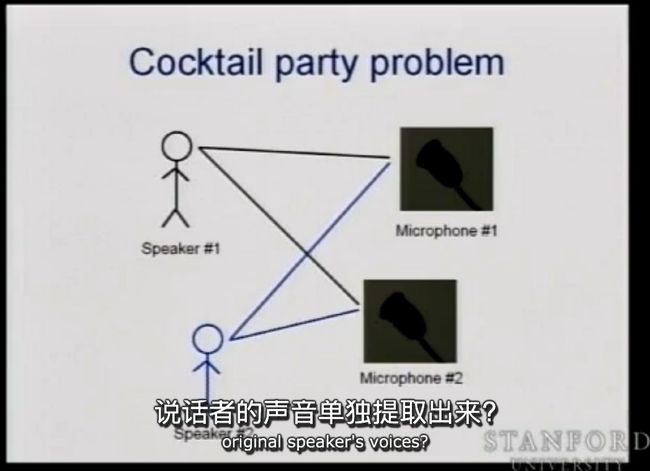- 【Vue入门实践】Element-UI 树形组件el-tree的组件封装 =>实现组织机构树Tree => 使用vue-content-menu定制可编辑树结构editableTree
小白Rachel
前端工作日记随笔Vue项目实战elementUI组件优化vue.jsuielementuiel-tree组织机构树
文章资源连接(如果需要付费,联系我修改即可):https://download.csdn.net/download/Sabrina_cc/87607289好吧吐槽一下,公司决定之后的技术栈都是vue了,我又从React转战回来了。干巴爹好的生活方式,是和一群志同道合的人,一起奔跑在理想的路上!回头有一路的故事,低头有坚定的脚步,抬头有清晰的远方。首先了解Element-UI中定义的基础Tree树组
- Rancher从入门到精通:架构设计与编程
PixelCoder
rancher编程
Rancher从入门到精通:架构设计与编程Rancher是一款功能强大的开源容器管理平台,它提供了便捷的容器编排、部署和管理功能。本文将详细介绍Rancher的架构设计,并结合相应的源代码进行编程实践。一、Rancher架构设计概述Rancher采用微服务架构,由多个核心组件组成。下面是Rancher的主要组件及其功能:RancherServer:作为Rancher的核心组件,负责管理和控制整个系
- Rancher - 产品架构详解与编程实践
风华绚烂
rancher架构编程
Rancher-产品架构详解与编程实践Rancher是一个开源的容器管理平台,它提供了丰富的功能和工具,用于简化容器部署、管理和编排。本文将详细介绍Rancher的产品架构,并提供一些编程实践示例。Rancher的产品架构主要由三个核心组件组成:RancherServer、RancherAgent和RancherUI。下面将对每个组件进行详细解释。RancherServer:RancherServ
- 面试官说 “你还有什么问题想问的” ,作为一名程序员该如何回答?
Misdirection_XG
面试经验分享androidjava
前言程序员面试时经常会听到面试官说一些套话,比如“今天的面试就到这里了,回去等通知吧”,“你还有什么问题想问我的吗”,“如果这道题不会做,那么我们也可以换一道”今天我们要说的是大多数面试官都会说的一句话“你还有什么问题想问的?”这是一个老生常谈的问题,之前经历过不少面试,针对这个问题我也做过很多不同的回答,当然也参考了其他人的一些建议,我这里总结了几种回答的方法,仅供大家参考。1、没有了这听起来是
- Python实现聊天机器人(基于ChatterBot)
Lemonlittle
python开发语言
废话不多说,直接上正题。使用Python中的ChatterBot和Spacy库编写的简单聊天机器人:首先,需要安装ChatterBot和Spacy库,可以使用以下命令:复制插入pipinstallchatterbotpipinstallspacypython-mspacydownloaden_core_web_sm复制插入接下来,我们需要导入所需的库:python复制插入fromchatterbo
- 为AI聊天工具添加一个知识系统 之70 详细设计 之11 维度运动控制的应用:上下文受控的自然语言
一水鉴天
软件智能人工语言智能制造数据库
本文要点要点前面我们讨论了“维度”及其运动控制原理以及维度控制如何在中台微服务架构中撑起了“架构师”角色的一片天。下面我们从“维度”运动控制的一个典型应用场景:受控的自然语言”开始讨论。拼块文字型风格:维度运动控制下的受控自然语言演示了支持/支撑/支援的三因式分解(三化:化仪/化解/化法)效果。C单独支撑(独立支撑)的分组交换(激活:前/后。维度=0--静止“方”),A三顶支持(共同支持)的分段替
- ASP.NET Core MVC
AAA猪饲料批发李师傅
.NETmvc.netcorec#
项目结构控制器由Controller类实现,视图一般是扩展名为cshtml的文件,而模型则是只有属性的普通C#类。控制器类的名字一般以Controller结尾,并且被放到Controllers文件夹下。控制器的名字为控制器的类名去掉Controller。视图一般被放到Views文件夹下的控制器名字的文件夹下。视图→浏览器端提交的请求→模型→控制器→处理→模型→视图。渲染:Render。案例演示一个
- Apache POI
Annaday
Springapache
ApachePOI概述ApachePOI是用于在Java环境中读写MicrosoftOffice格式文件的开源库。支持对Excel、Word、PowerPoint等多种Office文件格式进行创建、读取、修改操作。由于企业开发中最常用的就是导出Excel文件,所以本文就以此进行讲解入门案例首先看一个简单的案例,我们需要使用该技术来读和写一个Excel文件第一步导入坐标org.apache.poip
- CSS快速入门
Annaday
前端css前端
CSS引入方式CSS样式文件有两种引入方式,既可以写在HTML文件内,也可以作为独立的以.css结尾的文件存在方式一:使用独立的CSS文件引入当CSS样式作为单独的文件时,需要在HTML文件的标签中使用link标签来引入该CSS文件。例如,假设有一个名为styles.css的CSS文件,要将其引入到HTML文件中,需按以下方式在标签内添加link标签:在上述代码中:rel="stylesheet"
- 医学类 使用TransUNet、UNet、DeepLabV3+、HRNet、PSPNet 模型对息肉分割数据集进行训练、评估和可视化 EDD2020息肉数据集分割数据集
计算机C9硕士_算法工程师
数据集语义分割医学类数据集语义分割息肉TransUNetUNet
息肉数据集/息肉瘤分割项目解决(已处理好:EDD2020数据集(EndoscopyDiseaseDetectionandSegmentationChallenge)该息肉分割数据集主要包含人体生长的(肠胃)息肉用于器官内部息肉瘤分割,息肉目标检测,息肉定位任务息肉分割是一个重要的医学影像分析任务,特别是在内窥镜检查中。EDD2020数据集是一个很好的起点。我们将使用几种流行的深度学习模型(如Tra
- 深度剖析 Rancher:一站式容器管理与编排平台
恩爸编程
dockerrancherRancher是什么Rancher作用Rancher使用Rancher概念
深度剖析Rancher:一站式容器管理与编排平台一、引言在当今数字化转型加速的时代,容器技术已成为构建和部署现代应用的基石。随着容器化应用的规模不断扩大以及复杂性日益增加,高效的管理与编排工具成为企业的迫切需求。Rancher应运而生,作为一款领先的开源容器管理平台,它不仅提供了强大的功能来简化容器的部署、管理和监控,还支持多种容器编排引擎,如Kubernetes、DockerSwarm等,为企业
- 单片机基础模块学习——数码管(二)
promising-w
单片机单片机嵌入式硬件蓝桥杯
一、数码管模块代码这部分包括将数码管想要显示的字符转换成对应段码的函数,另外还包括数码管显示函数值得注意的是对于小数点和不显示部分的处理方式由于小数点没有单独占一位,所以这里用到了两个变量i,j用于跳过小数点导致的占据其他字符显示在数码管上的位置不想让某一位数码管显示的时候,用空格来代替,根据共阳数码管原理图,应将P0引脚全部设为高电平才可熄灭#include"seg.h"//段码转换函数//0x
- 运算放大器应用电路设计笔记(四)
promising-w
运算放大器应用电路设计笔记笔记
动态范围表示正常工作时最小振幅与最大振幅的范围。例如,最小振幅为-14v,最大振幅为+14v,则动态范围为±14v,也有用绝对值或有效值表示振幅,最大电压与最小电压之比为动态范围,也称为多少dB。这时,最大振幅由电源电压决定,最小振幅由噪声或失调电压决定。确保动态范围的最简单方法是提高电源电压。提高电源电压就可增大最大振幅。但提高电源电压,效率要降低,不仅消耗了无效功率,而且可靠性也降低了。本章介
- 高频词汇背诵 Day1
promising-w
英语学习
systemn.系统;制度socialadj.社会的;交际的individualadj.个人的,单独的;独特的n.个人faradj.远的,遥远的,久远的adv.远地,遥远地,久远地;到......程度,......很多solvev.解决,解答culturen.修养,教养;文化,文明nuclearadj.核心的,中心的;原子核的,核的risev.起床,起立,上升,上涨,增长n.起源,发生,上升,上涨
- C51基础知识
promising-w
单片机单片机嵌入式硬件
1.什么是C51?计算机平台——C语言单片机平台——C51计算机平台的CPU主频,内存和硬盘相较于单片机平台都是巨大的量级,另一方面,计算机平台的有不同的操作系统,如Windows,Linux,macOS等,单片机一般是没有操作系统的,(也会有一些简单的操作系统如:RTOS,但与计算机平台的系统相比,还是较为简单的)代码直接运行在芯片上,我们常称为裸机开发,计算机平台的开发叫做基于系统的开发。另外
- 如何找回丢失的智能合约(SimpleToken )地址并清理合约
纸鸢666
合约破解案例区块链
简介在以太坊和其他区块链平台上,智能合约的部署和交互非常重要。然而,在实际应用中,开发者有时会遇到一些问题,比如丢失了已经部署的合约地址。在本文中,我们将探讨一个简单的智能合约示例,说明如何找回丢失的合约地址,并清理这些合约以避免资源浪费。1.问题背景假设有一个非常简单的代币工厂合约,任何人都可以通过它轻松创建新的代币合约。这个代币合约会接收以太币并根据以太币数量发行代币。在合约创建后,代币合约部
- .NET Core 中如何构建一个弹性HTTP 请求机制
!chen
技术分享.netcorehttp网络协议
1.理解弹性HTTP请求机制什么是弹性?弹性是指系统在面对故障或异常情况时,能够保持或快速恢复到正常状态的能力。在HTTP请求的上下文中,弹性意味着当请求失败时,系统能够自动采取一系列措施(如重试、降级、断路等)来确保请求最终成功或优雅地处理失败。为什么需要弹性HTTP请求机制?在分布式系统中,服务间的依赖关系复杂,任何一个服务的故障都可能导致整个系统的不可用。弹性HTTP请求机制可以帮助我们:提
- Effective C++ 规则43:学习处理模板化基类内的名称
哎呦,帅小伙哦
C++c++
1、背景在C++中,模板化基类为我们提供了强大的灵活性。然而,模板化基类的名称查找却经常会引发困惑,甚至导致编译错误。这是因为模板的名称查找规则与普通类不同。在普通类中,派生类可以直接访问基类的成员变量和成员函数,因为这些名称在编译时是确定的。然而,在模板化基类中,由于基类的定义依赖于模板参数,其成员的名称查找需要更多的信息来完成。如果派生类也是模板类,那么基类的成员名称只有在模板参数确定之后才能
- python发送钉钉消息,发送个人到工作通知
夜语醉星辰
Pythonpython钉钉开发语言
需求,钉钉消息通知不能发到群里,需要发送到个人。一、钉钉企业后台创建应用1、进入钉钉管理后台,创建应用2、记住ID等应用的信息,在后面需要用到3、设置允许对接的IP,需要公网IP4、设置权限,通讯录权限全选申请二、编写代码,通过手机号发送信息importrequestsimporttkinterastk#第一步:获取access_tokendefget_access_token(app_key,a
- Python | 基于支持向量机(SVM)的图像分类案例
python收藏家
python机器学习python机器学习
支持向量机(SVM)是一种监督机器学习算法,可用于分类和回归任务。在本文中,我们将重点关注使用SVM进行图像分类。当计算机处理图像时,它将其视为二维像素阵列。数组的大小对应于图像的分辨率,例如,如果图像是200像素宽和200像素高,则数组的尺寸为200x200x3。前两个维度分别表示图像的宽度和高度,而第三个维度表示RGB颜色通道。数组中的值范围为0到255,表示每个点处像素的强度。为了使用SVM
- 华为OD机试E卷 --学生方阵--24年OD统一考试(Java & JS & Python & C & C++)
飞码创造者
最新华为OD机试题库2024华为odjavajavascriptc语言python
文章目录题目描述输入描述输出描述用例题目解析JS算法源码Java算法源码python算法源码c算法源码c++算法源码题目描述学校组织活动,将学生排成一个矩形方阵。请在矩形方阵中找到最大的位置相连的男生数量。这个相连位置在一个直线上,方向可以是水平的,垂直的,成对角线的或者呈反对角线的。注:学生个数不会超过10000输入描述输入的第一行为矩阵的行数和列数,接下来的n行为矩阵元素,元素间用”,”分隔。
- 【基于无线电的数据通信链】Link 11 仿真测试
hcoolabc
现代科学技术史硬件工程
〇、废话Link11仿真测试涉及多个方面,包括信号仿真、协议模拟、数据链路层的仿真以及网络性能评估等。Link11是一种基于HF(高频)或UHF(超高频)波段的无线通信协议,主要用于军事通信系统中。为了仿真Link11测试,以下是一个基本的步骤和方法概述:1.明确仿真目标仿真测试的目标是确认Link11协议的可靠性、性能和功能是否满足特定需求。仿真可以覆盖以下几个方面:•信号传输仿真:模拟无线电信
- elementUI Table组件实现表头吸顶效果
热忱1128
elementuivue.js前端
需求描述当table内容过多的时候,页面上滑滚动,表头的信息也会随着被遮挡,无法将表头信息和表格内容对应起来,需要进行表头吸顶开始编码环境:vue2.6+、elementUIstep1:给el-table__header-wrapper加上样式//style/sticky-table-header.scss.el-table[is-sticky]{overflow:initial;--sticky
- Vue 3中导航守卫(Navigation Guard)结合Axios实现token认证机制
匹马夕阳
VUE技术集锦vue.js前端javascript
在Vue3中,导航守卫(NavigationGuard)用于拦截路由的变化,可以在用户访问页面前进行检查。结合Axios进行token认证机制时,我们可以通过导航守卫在路由跳转时,检查用户的认证状态,确保用户有有效的token进行认证。下面,我将通过具体代码示例,逐步讲解如何实现这一功能:文章目录1.安装必要的依赖2.创建`axios`实例3.在`router.js`中使用导航守卫4.处理登录与登
- C语言笔记
次次娅
c语言笔记算法
目录main函数printf函数占位符限定宽度小数位数数据类型变量创建初始化常量字面常量const修饰的常变量(定义常量)#define预处理器(定义常量)字符常量枚举(enum)枚举变量scanf函数基本用法占位符赋值忽略符main函数main函数是程序的⼊⼝,也被叫做:主函数。main前⾯的int表⽰main函数执⾏结束的时候返回⼀个整型类型的值。所以在main函数的最后写return0;正好
- 谷歌开发者模式调试Js代码 [保姆级教程]
yunAike
javascript开发语言ecmascript
开启开发者模式方法一:在网页中右键单击,选择“检查”选项,即可打开开发者工具。方法二:使用快捷键,在Windows/Linux系统中按Ctrl+Shift+I,在Mac系统中按Command+Option+I。开始调试JavaScript代码1.定位到源代码打开开发者工具后,点击上方的“Sources”(源代码)面板。该面板左侧是文件树,你可以从中找到要调试的JavaScript文件。如果是内联的
- tomcat:Caused by:java.lang.ClassNotFoundException: javax.servlet.ServletContextListener解决方法
码农研究僧
BUGjavatomcatspringmaven
目录1.找主问题2.普通方法3.进阶方法1.找主问题出现以下问题大概是在终端中这样显示让你去查看日志[2021-08-1909:20:24,031]Artifactssm项目:warexploded:Artifactisbeingdeployed,pleasewait...19-Aug-202121:20:26.871信息[RMITCPConnection(3)-127.0.0.1]org.apa
- 周立功CAN驱动安装
一只大雄
嵌入式硬件
提示:文章写完后,目录可以自动生成,如何生成可参考右边的帮助文档文章目录前言一、未安装CAN驱动时候二、“USBCAN-E-U”驱动安装前言周立功CAN盒有比较多的型号:USBCAN-2E-U、USBCAN-4E-U等,这里以周立功CAN盒型号“USBCAN-E-U”为例讲解如何下载安装驱动。一、未安装CAN驱动时候1、CAN盒子的红色SYS指示灯常亮;2、PC端在设备管理器中显示“未知设备”二、
- 周末总结(2024/01/11)
全栈黎明
日记
工作人际关系核心实践:要学会随时回应别人的善意,执行时间控制在5分钟以内坚持每天早会打招呼遇到接不住的话题时拉低自己,抬高别人(无阴阳气息)朋友圈点赞控制在5min以内,职场社交不要放在5min以外职场的人际关系在面对利益冲突是直接质疑,要快准狠,不要内耗、回复消息要控制在30mins之内,一定要及时回复每周抽出10mins时间用来反思人际关系不能当面揭别人的短,这会显得自己情商很低三分假,七分真
- 周末总结(2024/01/18)
全栈黎明
日记
工作人际关系核心实践:要学会随时回应别人的善意,执行时间控制在5分钟以内坚持每天早会打招呼遇到接不住的话题时拉低自己,抬高别人(无阴阳气息)朋友圈点赞控制在5min以内,职场社交不要放在5min以外职场的人际关系在面对利益冲突是直接质疑,要快准狠,不要内耗、回复消息要控制在30mins之内,一定要及时回复每周抽出10mins时间用来反思人际关系不能当面揭别人的短,这会显得自己情商很低三分假,七分真
- 戴尔笔记本win8系统改装win7系统
sophia天雪
win7戴尔改装系统win8
戴尔win8 系统改装win7 系统详述
第一步:使用U盘制作虚拟光驱:
1)下载安装UltraISO:注册码可以在网上搜索。
2)启动UltraISO,点击“文件”—》“打开”按钮,打开已经准备好的ISO镜像文
- BeanUtils.copyProperties使用笔记
bylijinnan
java
BeanUtils.copyProperties VS PropertyUtils.copyProperties
两者最大的区别是:
BeanUtils.copyProperties会进行类型转换,而PropertyUtils.copyProperties不会。
既然进行了类型转换,那BeanUtils.copyProperties的速度比不上PropertyUtils.copyProp
- MyEclipse中文乱码问题
0624chenhong
MyEclipse
一、设置新建常见文件的默认编码格式,也就是文件保存的格式。
在不对MyEclipse进行设置的时候,默认保存文件的编码,一般跟简体中文操作系统(如windows2000,windowsXP)的编码一致,即GBK。
在简体中文系统下,ANSI 编码代表 GBK编码;在日文操作系统下,ANSI 编码代表 JIS 编码。
Window-->Preferences-->General -
- 发送邮件
不懂事的小屁孩
send email
import org.apache.commons.mail.EmailAttachment;
import org.apache.commons.mail.EmailException;
import org.apache.commons.mail.HtmlEmail;
import org.apache.commons.mail.MultiPartEmail;
- 动画合集
换个号韩国红果果
htmlcss
动画 指一种样式变为另一种样式 keyframes应当始终定义0 100 过程
1 transition 制作鼠标滑过图片时的放大效果
css
.wrap{
width: 340px;height: 340px;
position: absolute;
top: 30%;
left: 20%;
overflow: hidden;
bor
- 网络最常见的攻击方式竟然是SQL注入
蓝儿唯美
sql注入
NTT研究表明,尽管SQL注入(SQLi)型攻击记录详尽且为人熟知,但目前网络应用程序仍然是SQLi攻击的重灾区。
信息安全和风险管理公司NTTCom Security发布的《2015全球智能威胁风险报告》表明,目前黑客攻击网络应用程序方式中最流行的,要数SQLi攻击。报告对去年发生的60亿攻击 行为进行分析,指出SQLi攻击是最常见的网络应用程序攻击方式。全球网络应用程序攻击中,SQLi攻击占
- java笔记2
a-john
java
类的封装:
1,java中,对象就是一个封装体。封装是把对象的属性和服务结合成一个独立的的单位。并尽可能隐藏对象的内部细节(尤其是私有数据)
2,目的:使对象以外的部分不能随意存取对象的内部数据(如属性),从而使软件错误能够局部化,减少差错和排错的难度。
3,简单来说,“隐藏属性、方法或实现细节的过程”称为——封装。
4,封装的特性:
4.1设置
- [Andengine]Error:can't creat bitmap form path “gfx/xxx.xxx”
aijuans
学习Android遇到的错误
最开始遇到这个错误是很早以前了,以前也没注意,只当是一个不理解的bug,因为所有的texture,textureregion都没有问题,但是就是提示错误。
昨天和美工要图片,本来是要背景透明的png格式,可是她却给了我一个jpg的。说明了之后她说没法改,因为没有png这个保存选项。
我就看了一下,和她要了psd的文件,还好我有一点
- 自己写的一个繁体到简体的转换程序
asialee
java转换繁体filter简体
今天调研一个任务,基于java的filter实现繁体到简体的转换,于是写了一个demo,给各位博友奉上,欢迎批评指正。
实现的思路是重载request的调取参数的几个方法,然后做下转换。
- android意图和意图监听器技术
百合不是茶
android显示意图隐式意图意图监听器
Intent是在activity之间传递数据;Intent的传递分为显示传递和隐式传递
显式意图:调用Intent.setComponent() 或 Intent.setClassName() 或 Intent.setClass()方法明确指定了组件名的Intent为显式意图,显式意图明确指定了Intent应该传递给哪个组件。
隐式意图;不指明调用的名称,根据设
- spring3中新增的@value注解
bijian1013
javaspring@Value
在spring 3.0中,可以通过使用@value,对一些如xxx.properties文件中的文件,进行键值对的注入,例子如下:
1.首先在applicationContext.xml中加入:
<beans xmlns="http://www.springframework.
- Jboss启用CXF日志
sunjing
logjbossCXF
1. 在standalone.xml配置文件中添加system-properties:
<system-properties> <property name="org.apache.cxf.logging.enabled" value=&
- 【Hadoop三】Centos7_x86_64部署Hadoop集群之编译Hadoop源代码
bit1129
centos
编译必需的软件
Firebugs3.0.0
Maven3.2.3
Ant
JDK1.7.0_67
protobuf-2.5.0
Hadoop 2.5.2源码包
Firebugs3.0.0
http://sourceforge.jp/projects/sfnet_findbug
- struts2验证框架的使用和扩展
白糖_
框架xmlbeanstruts正则表达式
struts2能够对前台提交的表单数据进行输入有效性校验,通常有两种方式:
1、在Action类中通过validatexx方法验证,这种方式很简单,在此不再赘述;
2、通过编写xx-validation.xml文件执行表单验证,当用户提交表单请求后,struts会优先执行xml文件,如果校验不通过是不会让请求访问指定action的。
本文介绍一下struts2通过xml文件进行校验的方法并说
- 记录-感悟
braveCS
感悟
再翻翻以前写的感悟,有时会发现自己很幼稚,也会让自己找回初心。
2015-1-11 1. 能在工作之余学习感兴趣的东西已经很幸福了;
2. 要改变自己,不能这样一直在原来区域,要突破安全区舒适区,才能提高自己,往好的方面发展;
3. 多反省多思考;要会用工具,而不是变成工具的奴隶;
4. 一天内集中一个定长时间段看最新资讯和偏流式博
- 编程之美-数组中最长递增子序列
bylijinnan
编程之美
import java.util.Arrays;
import java.util.Random;
public class LongestAccendingSubSequence {
/**
* 编程之美 数组中最长递增子序列
* 书上的解法容易理解
* 另一方法书上没有提到的是,可以将数组排序(由小到大)得到新的数组,
* 然后求排序后的数组与原数
- 读书笔记5
chengxuyuancsdn
重复提交struts2的token验证
1、重复提交
2、struts2的token验证
3、用response返回xml时的注意
1、重复提交
(1)应用场景
(1-1)点击提交按钮两次。
(1-2)使用浏览器后退按钮重复之前的操作,导致重复提交表单。
(1-3)刷新页面
(1-4)使用浏览器历史记录重复提交表单。
(1-5)浏览器重复的 HTTP 请求。
(2)解决方法
(2-1)禁掉提交按钮
(2-2)
- [时空与探索]全球联合进行第二次费城实验的可能性
comsci
二次世界大战前后,由爱因斯坦参加的一次在海军舰艇上进行的物理学实验 -费城实验
至今给我们大家留下很多迷团.....
关于费城实验的详细过程,大家可以在网络上搜索一下,我这里就不详细描述了
在这里,我的意思是,现在
- easy connect 之 ORA-12154: TNS: 无法解析指定的连接标识符
daizj
oracleORA-12154
用easy connect连接出现“tns无法解析指定的连接标示符”的错误,如下:
C:\Users\Administrator>sqlplus username/
[email protected]:1521/orcl
SQL*Plus: Release 10.2.0.1.0 – Production on 星期一 5月 21 18:16:20 2012
Copyright (c) 198
- 简单排序:归并排序
dieslrae
归并排序
public void mergeSort(int[] array){
int temp = array.length/2;
if(temp == 0){
return;
}
int[] a = new int[temp];
int
- C语言中字符串的\0和空格
dcj3sjt126com
c
\0 为字符串结束符,比如说:
abcd (空格)cdefg;
存入数组时,空格作为一个字符占有一个字节的空间,我们
- 解决Composer国内速度慢的办法
dcj3sjt126com
Composer
用法:
有两种方式启用本镜像服务:
1 将以下配置信息添加到 Composer 的配置文件 config.json 中(系统全局配置)。见“例1”
2 将以下配置信息添加到你的项目的 composer.json 文件中(针对单个项目配置)。见“例2”
为了避免安装包的时候都要执行两次查询,切记要添加禁用 packagist 的设置,如下 1 2 3 4 5
- 高效可伸缩的结果缓存
shuizhaosi888
高效可伸缩的结果缓存
/**
* 要执行的算法,返回结果v
*/
public interface Computable<A, V> {
public V comput(final A arg);
}
/**
* 用于缓存数据
*/
public class Memoizer<A, V> implements Computable<A,
- 三点定位的算法
haoningabc
c算法
三点定位,
已知a,b,c三个顶点的x,y坐标
和三个点都z坐标的距离,la,lb,lc
求z点的坐标
原理就是围绕a,b,c 三个点画圆,三个圆焦点的部分就是所求
但是,由于三个点的距离可能不准,不一定会有结果,
所以是三个圆环的焦点,环的宽度开始为0,没有取到则加1
运行
gcc -lm test.c
test.c代码如下
#include "stdi
- epoll使用详解
jimmee
clinux服务端编程epoll
epoll - I/O event notification facility在linux的网络编程中,很长的时间都在使用select来做事件触发。在linux新的内核中,有了一种替换它的机制,就是epoll。相比于select,epoll最大的好处在于它不会随着监听fd数目的增长而降低效率。因为在内核中的select实现中,它是采用轮询来处理的,轮询的fd数目越多,自然耗时越多。并且,在linu
- Hibernate对Enum的映射的基本使用方法
linzx0212
enumHibernate
枚举
/**
* 性别枚举
*/
public enum Gender {
MALE(0), FEMALE(1), OTHER(2);
private Gender(int i) {
this.i = i;
}
private int i;
public int getI
- 第10章 高级事件(下)
onestopweb
事件
index.html
<!DOCTYPE html PUBLIC "-//W3C//DTD XHTML 1.0 Transitional//EN" "http://www.w3.org/TR/xhtml1/DTD/xhtml1-transitional.dtd">
<html xmlns="http://www.w3.org/
- 孙子兵法
roadrunners
孙子兵法
始计第一
孙子曰:
兵者,国之大事,死生之地,存亡之道,不可不察也。
故经之以五事,校之以计,而索其情:一曰道,二曰天,三曰地,四曰将,五
曰法。道者,令民于上同意,可与之死,可与之生,而不危也;天者,阴阳、寒暑
、时制也;地者,远近、险易、广狭、死生也;将者,智、信、仁、勇、严也;法
者,曲制、官道、主用也。凡此五者,将莫不闻,知之者胜,不知之者不胜。故校
之以计,而索其情,曰
- MySQL双向复制
tomcat_oracle
mysql
本文包括:
主机配置
从机配置
建立主-从复制
建立双向复制
背景
按照以下简单的步骤:
参考一下:
在机器A配置主机(192.168.1.30)
在机器B配置从机(192.168.1.29)
我们可以使用下面的步骤来实现这一点
步骤1:机器A设置主机
在主机中打开配置文件 ,
- zoj 3822 Domination(dp)
阿尔萨斯
Mina
题目链接:zoj 3822 Domination
题目大意:给定一个N∗M的棋盘,每次任选一个位置放置一枚棋子,直到每行每列上都至少有一枚棋子,问放置棋子个数的期望。
解题思路:大白书上概率那一张有一道类似的题目,但是因为时间比较久了,还是稍微想了一下。dp[i][j][k]表示i行j列上均有至少一枚棋子,并且消耗k步的概率(k≤i∗j),因为放置在i+1~n上等价与放在i+1行上,同理
